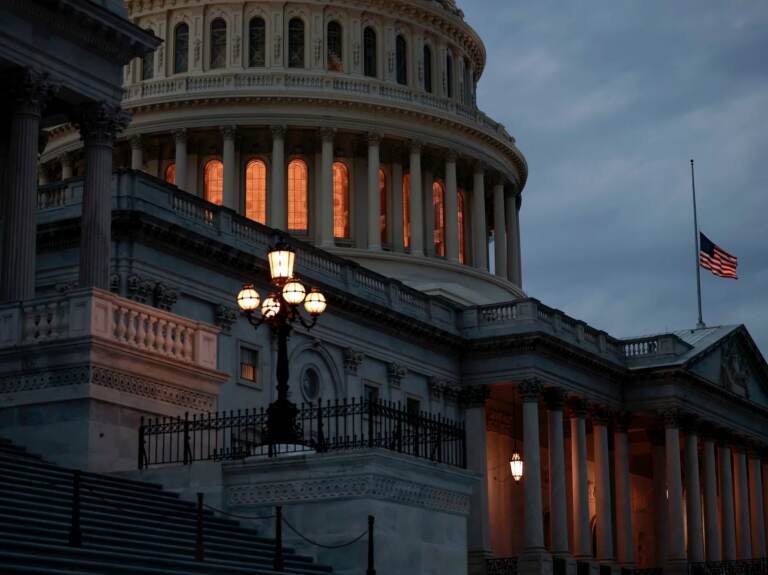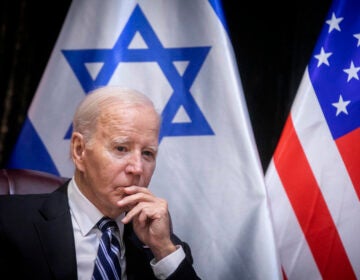The House OKs a bipartisan defense policy bill that includes servicemember pay boost

The U.S. Capitol on December 06, 2021 in Washington, DC. (Photo by Anna Moneymaker/Getty Images)
The House on Tuesday night passed a $768 billion defense bill, negotiated between both parties and both chambers, by a vote of 363-70.
The National Defense Authorization Act would boost pay by 2.7% for servicemembers, overhaul the military justice system and update diversity training requirements.
In a win for conservatives, a provision expanding the draft to include women was dropped from the compromise measure, despite being included in both the Senate and House versions of the NDAA and earlier bipartisan support for the provision.
An effort to scrap decades-old war authorizations was also left off the final measure.
The bill also includes $27.8 billion for the Department of Energy for nuclear weapons work, $3.5 billion for military construction across the country, as well as funds for military procurement of Arleigh Burke-class destroyers to F-35 aircraft.
Committee leaders hailed reforms to the Uniform Code of Military Justice, including removing commanders from the decision-making process of covered crimes, such as rape, sexual assault, murder and kidnapping. The defense bill also would criminalize sexual harassment under the UCMJ.
Sen. Kirsten Gillibrand, D-N.Y., however, argued the reforms don’t go far enough.
“House and Senate Armed Services leadership have gutted our bipartisan military justice reforms behind closed doors, doing a disservice to our service members and our democracy,” she said in a statement.
The Democrat, who sits on the Armed Services Committee, pushed for a bill that would remove convening authority from the chain of command.
The legislation would beef up resources to counter Russia and China. It would authorize $4 billion for the European Deterrence Initiative, which aims to discourage Russian aggression in Europe, and $7.1 billion for the Pacific Deterrence Initiative to discourage China’s aggression in the Pacific — as well as bolster the U.S. presence there.
Domestic politics also found its way into the bill.
For example, there is a provision that would prohibit private funding for deployment of a state national guard to any other state, except for a natural disaster. This came after South Dakota Gov. Kristi Noem this summer said donations from a Republican donor would pay for a deployment of guard members to the U.S. border with Mexico.
Lawmakers also use the bill to establish an independent Afghanistan War commission to study America’s longest war and provide recommendations and lessons learned. President Biden received bipartisan criticism for how his administration handled America’s withdrawal from the Afghanistan.
The compromise measure now heads to the Senate, where lawmakers have been unable to pass that chamber’s version.
Congress has passed the NDAA, usually in a bipartisan manner, for over 60 years in a row.
9(MDAzMzI1ODY3MDEyMzkzOTE3NjIxNDg3MQ001))




